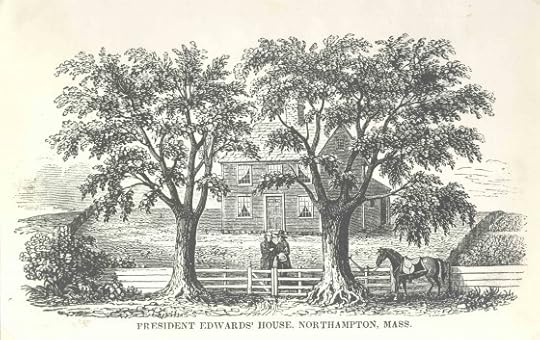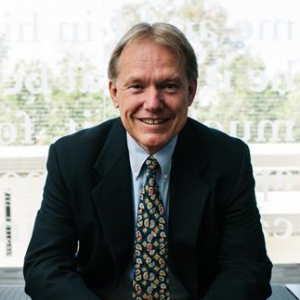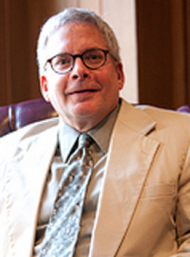Justin Taylor's Blog, page 153
June 14, 2013
What Did It Look and Sound Like in Jonathan Edwards’ New England?
Douglas Sweeney, Jonathan Edwards and the Ministry of the Word: A Model of Faith and Thought (IVP, 2009), 24-26:
Perhaps the first thing you would notice as you entered one of the small towns that structured Edwards’ world is the quietness of the daily lives of its residents. To be sure, you would hear noises—people talking and working with tools, the rhythmic clopping of horses’ hooves, the lowing of cows and bleating of sheep. But you would not hear any engines, whether of cars or heavy machinery. You might well hear a town crier making announcements to the community with the help of a hand bell, a conch shell or even a drum. But you would not hear any planes, trains, automobiles or trucks. Nor would you hear the steady humming, beeping, honking and general wailing of industrial equipment. In fact, the loudest sound to be heard in many early New England towns was the ringing, by the sexton, of the church bell.
As you traversed the town green, you would notice the smell of dung. (In early New England these spaces were often used for grazing.) But once you became inured to it, and learned to watch your step, your gaze would likely be fixed on the most important building on the green, the local church, or “meeting house,” as the Puritans usually called it. You would not find it impressive. England’s neogothic churches were aesthetically far more pleasing. From cavernous, cross-shaped naves, they attracted attention heavenward with their massive, vaulted ceilings, then to the altar, richly adorned and set in the center of the chancel. Worshipers walked forward reverently at the height of the liturgy to kneel at the rail (which divided nave and chancel very clearly), meet the priest, and then receive the body of Christ.
Walking into a meeting house in Puritan New England, by comparison, was like walking into a barn. In Edwards’ day, many churches sought to improve their meeting houses, adding pew cushions, arched windows, bell towers and spires. But the whitewashed, neoclassical, picture-perfect churches featured in regional tourist guides are the results of nineteenth-century nostalgia.
In colonial New England, churches were plain and sided with clapboard that was often left unpainted. As members entered them for worship, their gaze was not drawn toward the heavens or toward the Lord’s table. Ceilings were low. Most of the time members went without the Eucharist, and when they did commune, they usually sat at portable tables.
The center of attention in the Puritan meeting house was the pulpit, or “the desk,” as New Englanders commonly dubbed it for its importance as the locus of biblical scholarship in their midst. . . . from start to finish Puritan worship services centered on the Scriptures. Most of the liturgy was abandoned, as were visual and musical arts. Puritans called their churches meeting houses in order to mark this change.
They ruled out crosses, stained glass windows, indeed all manner of “graven images”—everything they thought would distract attention from the Word. They sang the Psalms a cappella, banning the use of musical instruments and resisting the use of hymnody in worship. (. . . Edwards and others would come to favor the use of hymns, causing a stir among traditionalists in the region.) Their clergy shed their vestments (ornate liturgical clothes), preaching instead in academic gowns that symbolized their calling to learned, biblical ministry (rather than sacramental priesthood). In short, they organized their towns, built their churches and planned their services to fix people’s attention on the Word.
June 13, 2013
It Was Good: Making Music to the Glory of God
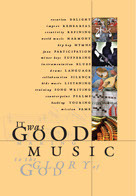 This blurb caught my eye, written by someone who knows and reads a lot of books:
This blurb caught my eye, written by someone who knows and reads a lot of books:
As a bookseller I am sometimes asked to help people find just the right book that will help them relate Christian faith to their careers, callings, interests and passions.
Sometimes, in some fields, this is difficult, if there are few great books in that field, or they are exceedingly difficult, less than theologically reliable, or poorly written.
Occasionally, though, I see a book and I want to tell everybody interested in its topic that it is a must-read, a nearly perfect resource for their precise purposes.
Even more rare is the book I want to tell everybody everywhere to read, as a model of creative Christian scholarship, useful, artful, beautifully designed, insightful, fun. It Was Good: Making Music to the Glory of God is just such a book. Everyone should be so fortunate as to have a book like this in their area of interest! Certainly for every musician, of any sort, and for anyone who likes music or even for those who don’t, this is a magnificent book, amazingly conceived and wonderfully produced. This is a truly remarkable achievement. Spread the word!
—Byron Borger, Hearts & Minds Bookstore
The book looks quite good, covering the gamut of issues related to music written by a number of musicians—from jazz (Bill Edgar) to modern hymns (Keith Getty), from truth (Shai Linne) to creativity (Sandra McCracken), from mission (Charlie Peacock) to training (Mark Foreman), and many more.
The book is a sequel/companion to the well-received publication, It Was Good: Making Art to the Glory of God.
June 12, 2013
How to Relax and Enjoy Your Heroes in the Faith
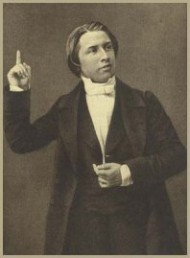 John Piper on Charles Spurgeon and his mind-boggling productivity for the gospel:
John Piper on Charles Spurgeon and his mind-boggling productivity for the gospel:
What shall we make of such a man?
Neither a god nor a goal.
He should not be worshiped or envied.
He is too small for the one and too big for the other.
If we worship such men, we are idolaters.
If we envy them, we are fools.
Mountains are not meant to be envied. They are meant to be marveled at for the sake of their Maker. They are mountains of God. . . .
We are to benefit from them without craving to be like them. When we learn this, we can relax and enjoy them. . . .
Let us be, by the grace of God, all that we can be for the glory of God (1 Corinthians 15:10).
In our smallness, let’s not become smaller by envy, but rather larger by humble admiration and gratitude for the gifts of others.
—John Piper, “Mountains Are Not Meant to Envy: Awed Thoughts on Charles Spurgeon,” in A Godward Life (Sisters, OR: Multnomah, 1997), pp. 264-265.
An Open Letter to Egalitarians about Liberalism
The always-sharp Andrew Wilson writes:
A few days ago, Scot McKnight linked to a post from the egalitarian publication The Priscilla Papers, which aimed to debunk Wayne Grudem’s argument about egalitarianism being a “slippery slope” to liberalism.
The very next day, Scot linked to a different post from the same publication, apparently without irony, which argued from social science that there were absolutely no differences between men and women, except their bodies.
The anti-essentialist argument is remarkable in itself, if we take God’s word as our highest authority, and reveals quite how far people are prepared to go to accommodate contemporary perceptions of sex and gender.
What I find equally remarkable, though, is the fact that it could be juxtaposed so merrily with an article debunking the slippery slope idea. I mean: it doesn’t take that much imagination to see how denying any essential differences between men and women could lead to a lower view of the Old Testament, a lower view of the New Testament, an increased openness to homosexual practice, and an approach to sex and gender in which (to pinch a phrase) the Bible is in the dock, and the social scientists are behind the bench in powdered wigs. Does it? Did nobody on the editorial board say: huh?
Andrew’s answer of whether egalitarianism leads to liberalism is: “it depends”—namely, on why someone is an egalitarian. He identifies four species of egalitarianism (exegetical, experiential, trajectory-hermeneutic, and kingdom-now), and argues that the first is not a slippery slope, though the others may be.
The whole piece is worth reading.
Let me pick up on one element in particular that may need a little push back. Andrew writes:
The evidence simply doesn’t bear out the claim that egalitarianism necessarily leads to liberalism: it doesn’t necessarily happen denominationally (English Baptists, the Salvation Army), and it doesn’t necessarily happen individually (Gordon Fee, Tom Wright, Roger Nicole, Chris Wright, Steve Holmes, Ben Witherington, and goodness knows how many others). So on this point, I want to agree with the [Priscilla Papers] article, and respectfully disagree with Wayne Grudem.
I think we need to be careful with slippery-slope arguments, as John Frame has reminded us. But we also need to be careful to restate Grudem’s argument accurately. He doesn’t claim that this necessarily happens, but that there is overwhelming evidence that it historically happens and that it lays the groundwork for it to probably happen, especially for those in the second generation who trace out the implications of key advocates today.
In this regard, it’s helpful to read a personal word from Grudem to his egalitarian friends who have not walked the path of liberalism. He writes the following in the introduction to Evangelical Feminism: A New Path to Liberalism?
On a more personal level, I want to say that I consider a number of the authors whom I name in this book to be my friends. And I consider a number of the executives at many of the colleges, seminaries, and publishing houses that I name in this book to be my friends as well. I want to say something to you at the outset.
I realize that many of you have not personally moved along the path toward liberalism that I describe in this book. You simply decided (for various reasons) that you thought the Bible does not prohibit women from being pastors or elders today, and you have changed nothing else in your theological system. You haven’t moved to liberalism and you wonder why I wrote this book arguing that evangelical feminism leads to liberalism.
In fact, I agree with your strong desire to see women’s gifts and ministries developed and encouraged in our churches, and I have written elsewhere about the many important ministries that I think should be open to both men and women.
In addition, I realize that most of you do not think you are leading churches and schools toward liberalism at all. After all, you personally love Jesus Christ and love the Bible and teach it effectively. How, you might think, could that contribute to liberalism? And furthermore, you know others who take the same approaches, and they haven’t become liberal, have they?
In fact, I have a number of egalitarian friends who have not moved one inch toward liberalism in the rest of their doctrinal convictions, and who still strongly believe and defend the inerrancy of the Bible. I include among this number strong defenders of biblical inerrancy such as Stan Gundry (senior vice president and editor in chief of the Book Group at Zondervan Publishing Company); Jack Hayford (founding pastor of the Church on the Way, Van Nuys, California); Walter Kaiser (former president of Gordon-Conwell Theological Seminary); Roger Nicole (former professor at Gordon-Conwell Theological Seminary and at Reformed Theological Seminary-Orlando); and Grant Osborne (professor at Trinity Evangelical Divinity School in Deerfield, Illinois). These men are respected senior scholars and leaders in the evangelical world. If they can hold to an evangelical feminist or egalitarian position without moving toward liberalism themselves, then how can I argue in this book that evangelical feminism is a new path toward liberalism?
I do so because of the nature of the arguments used by evangelical feminists, arguments that I explain in some detail in the following pages. I realize that a person can adopt one of these arguments and not move any further than that single step down the path to liberalism for the rest of his life. Many of these leaders have done just that. But I think the reason they have not moved further toward liberalism is that they have not followed the implications of the kind of argument they are using and have not taken it into other areas of their convictions. However, others who follow them will do so. Francis Schaeffer warned years ago that the first generation of Christians who lead the church astray doctrinally change only one key point in their doctrinal position and change nothing else, so it can seem for a time that the change is not too harmful. But their followers and disciples in the next generation will take the logic of their arguments much further and will advocate much more extensive kinds of error. I think that is happening in a regular, predictable way in evangelical feminism, and I have sought to document that in this book.
Therefore, to all of my egalitarian friends, I ask you to consider care fully the arguments and the pattern of arguments that I discuss in this book. You may think you are doing nothing wrong, or you may think that if you adopt a doubtful or questionable interpretation here or there, it won’t matter much. But I am asking you to stop and consider what is happening in the evangelical feminist movement as a whole, how the trend is to undermine the authority of Scripture again and again at this verse or in that phrase or this chapter or that context.
You may think your own role in this does not influence the larger debate, but, like the soldier in a battle line who thinks that his place is not that important, if you give way at one point you may provide a huge opening for an enemy to flood in and overrun large sections of the church.
It is easy to pick up a new article or book, skim through the argument, and think, “Well, I can’t agree with his (or her) approach to this verse, or that argument, but at least the book is supporting what I know to be right: the inclusion of women in all aspects of ministry. Maybe this argument or that one is not acceptable, but I can approve the result just the same.” And so, one after another, the egalitarian arguments that I list in this book accumulate and the Christian public accepts them.
But what if the assumptions made, and the interpretative principles used, actually do undermine the authority of Scripture time and again? Does that make any difference to you? If you allow arguments to stand that undermine Scripture again and again, just because you think the author “got the right answer for the wrong reason,” isn’t that eroding the foundation of your church for the future? If Scripture-eroding arguments go unchallenged in your circles, how can you protect your church or your organization in the future? While you personally may not change much else in your beliefs, your students and others who follow your leadership will take the principles you have used much further and will abandon much more than you expect.
Please consider what I say in these pages. I hope you will be persuaded, and will perhaps even change your mind on some of the arguments you have used, or even on the conclusions you have drawn. But even if at the end you are still convinced that an egalitarian position is correct, will you at least decide to challenge publicly some of the evident steps toward liberalism that other egalitarians have supported?
With all of the steps toward liberalism that I detail in these pages, it surprises me to see how few egalitarian leaders publicly object to any of these arguments. I hope I can count on some of you to do so.
It seems to me that one need not agree with every jot and tittle of Grudem’s argument to see the valid points he is raising here.
Bret Lott on Being a Christian Who Is a Writer
From a profile on bestselling novelist Bret Lott:
Novelist Bret Lott picked up the ringing phone. It was television megastar Oprah Winfrey. Herself. She was calling to tell him she loved his novel, “Jewel,” so much that she had selected it for the February 1999 Oprah’s Book Club.
In today’s literary marketplace, getting picked by Oprah is the big break every writer dreams of. It means going from the midlists to the majors. It means instant best seller.
But just a few hours earlier, Lott had learned that one of his students had died — a 51-year-old single man who lived at home to care for his invalid mother. “They found him slumped over at his desk,” Lott recounted, “where he had been reading one of my novels.” Then came the Oprah call.
“It was clearly God’s timing,” said Lott. “He was telling me that one day I, too, was going to die and stand before him and give an account. That no amount of worldly success, no record of best-selling novels was going to save me. Only faith in Jesus Christ, who died on the cross and rose again to save us from our sins.”
In his chapter, “Why Have We Given Up the Ghost? Notes on Reclaiming Literary Fiction”— the first essay in his latest book, Letters and Life: On Being a Writer, On Being a Christian (Crossway, 2013)—he begins, “My name is Bret Lott, and I believe in God the Father Almighty, Maker of heaven and earth.”
The poet Dana Gioia, former Chairman of the National Endowment for the Arts, writes: “Bret Lott has dared to write an impossible book—a serious and candid set of meditations on what it means to be a Christian writer living in a secular society that neither respects nor even understands his faith. I can hardly imagine a more difficult topic or a more necessary one. Letters and Life has the courage to explore a question at the heart of contemporary culture: How do we reconcile the spirit and the imagination?”
Here he is talking about writing and faith:
June 10, 2013
Martyn Lloyd-Jones: Advice on What to Read
D. Martyn Lloyd-Jones:
My advice to you is: Read Jonathan Edwards. Stop going to so many meetings; stop craving for the various forms of entertainment which are so popular in evangelical circles at the present time. Learn to stay at home. Learn to read again, and do not merely read the exciting stories of certain modern people. Go back to something solid and deep and real.
Are we losing the art of reading? Revivals have often started as the result of people reading volumes such as these two volumes of Edwards’ works. So read this man. Decide to do so. Read his sermons; read his practical treatises, and then go on to the great discourses on theological subjects.
—D. Martyn Lloyd-Jones, “Jonathan Edwards and the Crucial Importance of Revival,” Puritans: Their
Origins and Successors (Edinburgh: Banner of Truth, 1987), 369-370.
Lloyd-Jones elsewhere explained the importance of this practice in his own ministry:
In my early days in the ministry there were no books which helped me more, both personally and in respect of my preaching, than the two-volume edition of the Works of Jonathan Edwards. . . . I devoured these volumes and literally just read and reread them. It is certainly true that they helped me more than anything else. . . . If I had the power I would make these two volumes compulsory reading for all ministers!
“The Least of These”: An Example of the Right Doctrine from the Wrong Text
In Matthew 24:35-40, Jesus says: “I was hungry and you gave me food, I was thirsty and you gave me drink, I was a stranger and you welcomed me, I was naked and you clothed me, I was sick and you visited me, I was in prison and you came to me.’ Then the righteous will answer him, saying, ‘Lord, when did we see you hungry and feed you, or thirsty and give you drink? And when did we see you a stranger and welcome you, or naked and clothe you? And when did we see you sick or in prison and visit you?’ And the King will answer them, ’Truly, I say to you, as you did it to one of the least of these my brothers, you did it to me.’”
Craig Blomberg comments:
The majority perspective has understand Jesus’ ‘brothers’ in verse 40 to refer to spiritual kin, as the term (adelphoi) does elsewhere in Matthew in every instance in which biological siblings are not in view (see 5:22-24, 47; 7:3-5; 12:48-50; 18:15 twice, 21, 35; 23:8; 28:10).
The term ‘little ones’, of which ‘the least’ (25:40, 45) is the superlative form, also without exception in Matthew refers to disciples (10:42; 18:6, 10, 14; cf. also 5:19 and 11:11).
This makes the point of Jesus’ teaching closely parallel to Matthew 10:42: Jesus’ itinerant followers (today we might call them Christian missionaries) must be cared for by those to whom they minister. Affording material help to those who preach in the name of Jesus demonstrates acceptance of the missionaries’ message at the spiritual level . . . This view is almost certainly correct.
Today, however, the prevailing interpretation is that Jesus is teaching about the need to help the dispossessed whether or not they are Christian. . . .
This is obviously an important biblical theme, but is far less likely to be the focus of this particular passage, given the consistent meaning of the terms and the larger context of parables focusing on the disciples (24:43-25:46).
—Craig L. Blomberg, Neither Poverty nor Riches: A Biblical Theology of Material Possessions, New Studies in Biblical Theology, ed. D. A. Carson (Downers Grove, IL: IVP, 2000), 126; my emphasis.
June 7, 2013
The Passive-Aggressive Pride of Self-Pity
 A great word here from Kevin DeYoung:
A great word here from Kevin DeYoung:
This is one of the irrefutable laws of leadership: the broader your influence flowing down, the more frequent the complaints can flow back up.
Don’t be surprised by the fiery trials.
Don’t be startled by opposition.
Don’t let the ugliness of manipulation, the weakness of passive-aggressive behavior, and the cowardliness of retaliation took root in your soul.
Be vigilant against self-pity when it spots like gangrene in your heart.
Do leaders deserve all the flack they get at times? Probably not.
Do they deserve all the influence, opportunities, and privileges they’ve been given? Certainly not.
Nothing good comes from feeling sorry for myself when people don’t like my ideas, or misjudge my motives, or forget all the good I’ve done in the past.
Crying out to God is one thing. A very good thing too.
But self-pity is not that. Self-pity is crying out in the echo chamber of my own little world. It’s issuing a lament just to take pleasure in hearing the lament over and over.
You can read the whole thing here.
When was the last sermon you heard of article you read on the sin of self-pity? It seems like a neglected and respectable sin that has been downplayed.
John Piper once made a helpful comparison of boasting and self-pity, both manifestations of pridefulness:
Boasting is the response of pride to success.
Self-pity is the response of pride to suffering.
Boasting says, “I deserve admiration because I have achieved so much.”
Self-pity says, “I deserve admiration because I have suffered so much.”
Boasting is the voice of pride in the heart of the strong.
Self-pity is the voice of pride in the heart of the weak.
Boasting sounds self-sufficient.
Self-pity sounds self-sacrificing.
Piper concludes:
The reason self-pity does not look like pride is that it appears to be so needy. But the need arises from a wounded ego. It doesn’t come from a sense of unworthiness, but from a sense of unrecognized worthiness. It is the response of unapplauded pride.
The Kingdom of God: A Multi-Scholar Interview
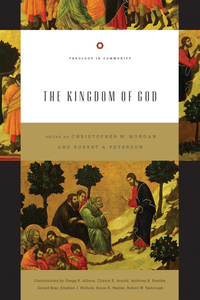 One series that deserves more attention is the Theology in Community series. Editors Chris Morgan and Robert Peterson gather outstanding contributors to look at crucial theological topics. By focusing on one subject and by finding the best scholars to address the subject from multiple perspectives—Old Testament and New Testament, biblical theology and systematic theology, apologetics and missional, historic and contemporary—they are able to go deeper and wider than any one theologian could go on his own.
One series that deserves more attention is the Theology in Community series. Editors Chris Morgan and Robert Peterson gather outstanding contributors to look at crucial theological topics. By focusing on one subject and by finding the best scholars to address the subject from multiple perspectives—Old Testament and New Testament, biblical theology and systematic theology, apologetics and missional, historic and contemporary—they are able to go deeper and wider than any one theologian could go on his own.
Below you’ll find some Q&A with the editors—along with Bruce Waltke, Bob Yarbrough, Clint Arnold, Gregg Allison, and Gerald Bray, who all contributed to the latest volume, which is on The Kingdom of God.
Chris Morgan and Robert Peterson
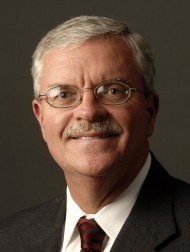 The Kingdom of God is the fourth volume in the Theology in Community series. What are some of the other books in the series?
The Kingdom of God is the fourth volume in the Theology in Community series. What are some of the other books in the series?
The first three volumes in the Theology in Community series are Suffering and the Goodness of God, The Glory of God, and The Deity of Christ.
The fifth volume, Fallen: A Theology of Sin, is due out in October. The sixth volume, Heaven, should appear in 2014.
What are the goals of the series? Why is it important? How is it distinct?
We named the series as we did for two reasons.
First, Theology in Community means we want to promote clear 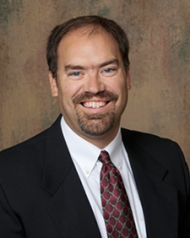 biblical thinking and godly responses to theological issues, both historic and contemporary. As we examine issues central to the Christian faith, we strive not only to follow a sound theological method but also to display it. Chapters addressing the Old and New Testaments on the book’s subject form the heart of each volume. Subsequent chapters synthesize the biblical teaching and link it to historical, philosophical, systematic, and pastoral concerns. Far from being mere collections of essays, the volumes are carefully crafted so that the voices of the various experts combine to proclaim a unified message.
biblical thinking and godly responses to theological issues, both historic and contemporary. As we examine issues central to the Christian faith, we strive not only to follow a sound theological method but also to display it. Chapters addressing the Old and New Testaments on the book’s subject form the heart of each volume. Subsequent chapters synthesize the biblical teaching and link it to historical, philosophical, systematic, and pastoral concerns. Far from being mere collections of essays, the volumes are carefully crafted so that the voices of the various experts combine to proclaim a unified message.
Second, Theology in Community seeks to do theology in teams. The teachings of the Bible were forged in real-life situations by leaders in God’s covenant communities. Theology was formulated by the church for the church. This series seeks to recapture that biblical reality. Scholars from many backgrounds, disciplines, and experiences with academic credentials work together. They have a high view of Scripture, robust evangelical convictions, and love grace. They are personally involved in ministry, serving as teachers, pastors, and missionaries. They stand in continuity with the historic church, care about the global church, share life together with others in local churches, and aim to write for the good of the church.
In your essays on the kingdom of God in the Old Testament, you refer to the “external emerging kingdom of God” and the “internal emerging kingdom of God.” What do you mean by these terms, and why have you found this distinction helpful?
By God’s external (i.e., universal) kingdom is meant the activity of God (‘elohim [Hebrew]: “the transcendent, omnipotent Creator and Sustainer of all things”) in exercising his sovereignty over all things. God parcels out to the nations their lands (Deut. 2:5, 9; 32:8), rules over their kings (Deut. 2:30), and even gives them their [false] gods (Deut. 4:19; 29:25-26).
By God’s internal (i.e., particular) kingdom is meant God’s activity in exercising his authority over his subjects who, out of their faith in him and love for him, serve only him.
By emerging I mean that both kingdoms become more and more clearly defined. It is now clear that Satan rules the universal kingdom and that Christ rules the Church in the particular kingdom.
The distinction exhibits more clearly how both kingdoms bring glory to God.
In the universal kingdom he shows his sovereignty over all things—he created and sustains all things, even the gods opposed to him. There is nothing outside of his purview. The creation, for example, exhibits his incommunicable attributes: omniscience, omnipotence, and omnipresence.
The particular kingdom exhibits his communicable attributes: mercy, love, patience, unfailing kindness, justice, and truth. The distinction, moreover, makes clear the nature of the war between the subjects of Satan and his kingdom and of Christ and his kingdom.
What questions about the kingdom arose for you or still linger for you?
What emerges more clearly for me and still remains something a tension is the reality that God has so designed history that his particular kingdom wars against the spiritual darkness of Satan’s kingdom that is a part of God’s universal kingdom.
In your essays on the kingdom of God in the New Testament, you began with Revelation. Why did you do that, and how was it helpful?
I started with Revelation because it completes the Bible’s portrait of God’s kingdom. You get parts of the picture throughout the Bible, of course. But I wanted to start with Revelation’s magisterial mural of the whole. I felt that would help us see the smaller parts of the picture for what they really are. Otherwise, there is a real danger of not seeing the forest (the kingdom of God in its eternal majesty) for the trees (the texts and narratives throughout the Bible that lay the foundation for and testify to the kingdom).
This results in putting Jesus’s kingdom sayings and labors in proper perspective. They flow toward the doxological vision found in Revelation. Now, “kingdom of God” is not just about doxology (the praise of God). But it should always lead in that direction. Starting with Revelation helps ensure that it will.
What questions about the kingdom still linger for you?
Hanging in the air for me are two kinds of questions.
First, how can we understand Christ’s teachings and actions in ways that will clarify what he meant by “kingdom”?
Second, what should it look like for us, personally and as the church, to live as subjects of Christ’s kingdom? Some people live with an acute political consciousness—they are right-wing, or left-wing, and it suffuses all they think and do. I think Christians should live with an acute kingdom consciousness, one that shapes all decisions and activities. But do we? This is a significant question that I hope the book will help people address in a more informed way.
In your chapter on “The Kingdom, Miracles, Satan, and Demons,” you state that miracles signify and demonstrate the arrival of the kingdom. Please explain.
Jesus himself declared, “But if it is by the Spirit of God that I cast out demons, then the kingdom of God has come upon you” (Matt. 12:28; see also Luke 11:20). Jesus invites all of those who marvel at his exorcisms to grasp what they really signify: that the Kingdom of God has arrived with him. The miracles of Jesus are also evidence that God’s Spirit was powerfully at work in and through him. This work of the Spirit heralds the arrival of the new covenant age and stands in continuity with the scriptural testimony of God working powerfully to bring redemption to his people. Jesus, empowered by the gentle Dove who descended at his baptism, would work to overthrow the dominion of the adversary. The new insight is that the Romans were not the enemy; the true enemies were the power of sin and the power of the evil one.
What questions about the kingdom still linger for you?
The nature of the relationship between the Kingdom of God and ethnic/national Israel remains a live issue for me. The evidence seems to suggest that God still has promises to fulfill to ethnic/national Israel. This is expressed most clearly for me in the apostle Paul’s explanation that “a partial hardening has come upon Israel until the fullness of the Gentiles has come in. And in this way [or, 'thus/so'] all Israel will be saved” (Rom. 11:25-26). In spite of the interpretational difficulties of this passage, it seems clear enough that something big has yet to take place among the Jewish people.
How did writing Sojourners and Strangers: The Doctrine of the Church (Foundations of Evangelical Theology, Crossway) shape your view of the kingdom?
My writing Sojourners and Strangers: The Doctrine of the Church contributed in two ways to my thinking about the kingdom of God.
First, it enabled me to develop a robust ecclesiology and thus to avoid common tendencies like equating the church and the kingdom, elevating the church to the point that the kingdom is neglected (for example, seen in a focus on evangelism that overlooks the concrete needs of people), emphasizing the kingdom to the point that the church is neglected (for example, seen in a focus on social justice that relegates the proclamation of the gospel to a bygone era), and the like.
Second, it helped me to avoid oversimplifying the relationship of the church and the kingdom by reducing it to only one or two issues. As my chapter in The Kingdom of God brings out, the relationship between the two is quite complex, which I summarize in five major points.
What questions about the relationship between the church and kingdom linger for you?
I am still fascinated by the fact that the church is the instrument through which entrance into the kingdom is granted, as Jesus affirmed to Peter (Matt. 16:13-20), yet is a part of this universal rule and eternal dominion of God. This relationship engenders both boldness, as the church proclaims the gospel and assures those who respond with repentance and faith that their sins are forgiven (John 20:19-23), and humility, as the church constantly seeks to know the will of its King and carry out his purposes, not its own agenda.
What does it mean to say that the kingdom is eschatological?
The kingdom is eschatological because it will be fulfilled at the end of time, when Christ returns to take up his rule and gives everything back to the Father who sent him. The chief importance of this for us right now is that we know that everything will be put right in the end, but it will be put right by God, not by us. Human attempts to achieve perfection here on earth are bound to fail—utopia is a kind of hell, not heaven.
As you studied and wrote the essay, what questions about the kingdom and eschatology arose for you?
As I wrote the essay I came to realize that the presence of the kingdom is the presence of the King. Where he is, there is his kingdom. For me, this completely changed my approach to the subject as I understood that the closer I am to Christ and the more of him there is in my life, the more I shall experience the reality of the kingdom, which is within me to the extent that his Spirit is in my heart (Gal. 4:6). How close am I to Christ? That is the big question!
June 6, 2013
This Is What an American College-aged Atheist Looks Like
 Larry Alex Taunton—founder and executive director of Fixed Point Foundation—has a helpful article in The Atlantic on their recent study of college-aged atheists in the U.S. They were surprised by the composite picture that emerged from these interviews, which he summarizes as follows:
Larry Alex Taunton—founder and executive director of Fixed Point Foundation—has a helpful article in The Atlantic on their recent study of college-aged atheists in the U.S. They were surprised by the composite picture that emerged from these interviews, which he summarizes as follows:
They had attended church
Most of our participants had not chosen their worldview from ideologically neutral positions at all, but in reaction to Christianity. Not Islam. Not Buddhism. Christianity.
The mission and message of their churches was vague
These students heard plenty of messages encouraging “social justice,” community involvement, and “being good,” but they seldom saw the relationship between that message, Jesus Christ, and the Bible. Listen to Stephanie, a student at Northwestern: “The connection between Jesus and a person’s life was not clear.” This is an incisive critique. She seems to have intuitively understood that the church does not exist simply to address social ills, but to proclaim the teachings of its founder, Jesus Christ, and their relevance to the world. Since Stephanie did not see that connection, she saw little incentive to stay. We would hear this again.
They felt their churches offered superficial answers to life’s difficult questions
When our participants were asked what they found unconvincing about the Christian faith, they spoke of evolution vs. creation, sexuality, the reliability of the biblical text, Jesus as the only way, etc. Some had gone to church hoping to find answers to these questions. Others hoped to find answers to questions of personal significance, purpose, and ethics. Serious-minded, they often concluded that church services were largely shallow, harmless, and ultimately irrelevant. As Ben, an engineering major at the University of Texas, so bluntly put it: “I really started to get bored with church.”
They expressed their respect for those ministers who took the Bible seriously
Following our 2010 debate in Billings, Montana, I asked Christopher Hitchens why he didn’t try to savage me on stage the way he had so many others. His reply was immediate and emphatic: “Because you believe it.” Without fail, our former church-attending students expressed similar feelings for those Christians who unashamedly embraced biblical teaching. Michael, a political science major at Dartmouth, told us that he is drawn to Christians like that, adding: “I really can’t consider a Christian a good, moral person if he isn’t trying to convert me.” As surprising as it may seem, this sentiment is not as unusual as you might think. It finds resonance in the well-publicized comments of Penn Jillette, the atheist illusionist and comedian: “I don’t respect people who don’t proselytize. I don’t respect that at all. If you believe that there’s a heaven and hell and people could be going to hell or not getting eternal life or whatever, and you think that it’s not really worth telling them this because it would make it socially awkward…. How much do you have to hate somebody to believe that everlasting life is possible and not tell them that?” Comments like these should cause every Christian to examine his conscience to see if he truly believes that Jesus is, as he claimed, “the way, the truth, and the life.”
Ages 14-17 were decisive
One participant told us that she considered herself to be an atheist by the age of eight while another said that it was during his sophomore year of college that he de-converted, but these were the outliers. For most, the high school years were the time when they embraced unbelief.
The decision to embrace unbelief was often an emotional one
With few exceptions, students would begin by telling us that they had become atheists for exclusively rational reasons. But as we listened it became clear that, for most, this was a deeply emotional transition as well. This phenomenon was most powerfully exhibited in Meredith. She explained in detail how her study of anthropology had led her to atheism. When the conversation turned to her family, however, she spoke of an emotionally abusive father:
“It was when he died that I became an atheist,” she said.
I could see no obvious connection between her father’s death and her unbelief. Was it because she loved her abusive father — abused children often do love their parents — and she was angry with God for his death? “No,” Meredith explained. “I was terrified by the thought that he could still be alive somewhere.”
Rebecca, now a student at Clark University in Boston, bore similar childhood scars. When the state intervened and removed her from her home (her mother had attempted suicide), Rebecca prayed that God would let her return to her family. “He didn’t answer,” she said. “So I figured he must not be real.” After a moment’s reflection, she appended her remarks: “Either that, or maybe he is [real] and he’s just trying to teach me something.”
The internet factored heavily into their conversion to atheism
When our participants were asked to cite key influences in their conversion to atheism–people, books, seminars, etc.—we expected to hear frequent references to the names of the “New Atheists.” We did not. Not once. Instead, we heard vague references to videos they had watched on YouTube or website forums.
You can read the whole thing here.
Justin Taylor's Blog
- Justin Taylor's profile
- 44 followers


